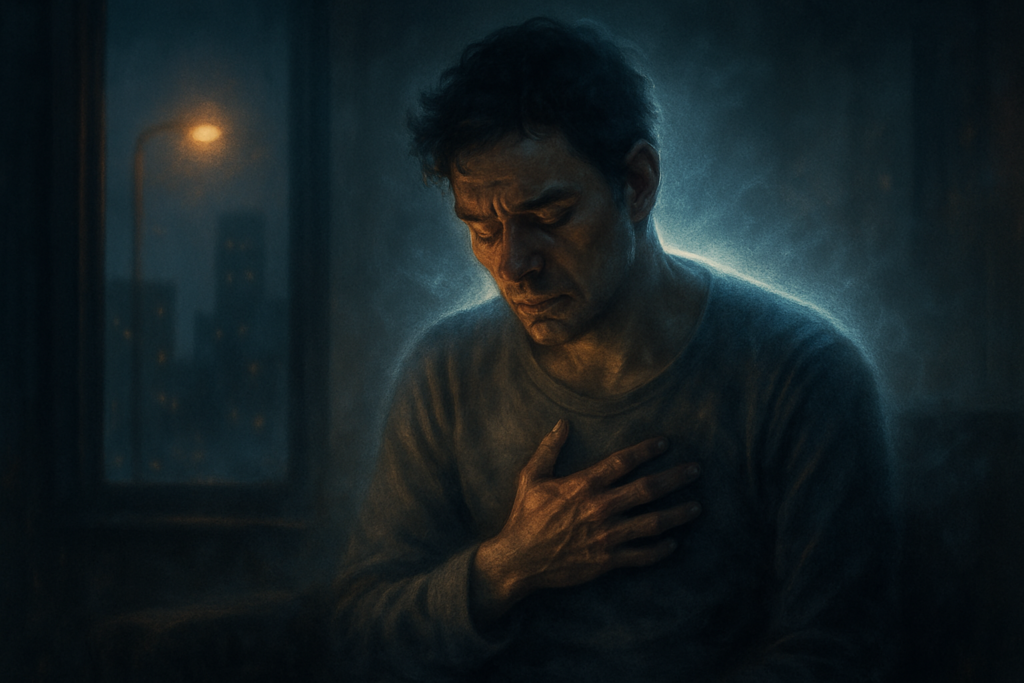
There’s a particular kind of tired you can’t sleep off.
The kind that lives in your chest, presses down on your ribs, and whispers things like “keep going,” when what you really want is to stop. Breathe. Lie down. Feel again.
For many of us living in cities like Mumbai, that’s just Tuesday.
You wake up already tense, sprint through a day packed with too much everything, and try to fall asleep with your brain still sprinting. It’s not burnout. It’s just life now, right?
We joke about needing a vacation or a therapist or five more hours in the day. But underneath the jokes, there’s something quieter. A question most of us don’t ask out loud:
“Is it supposed to feel this hard just to exist?”
At Balance Point Clinic, that’s where the work begins. In that pause. In that tiny, brave question.
This City Doesn’t Let You Exhale

Mumbai is beautiful. It’s electric. And it’s relentless.
There’s pressure in the air here—not just humidity, but expectation. You’re expected to show up. Push through. Be productive. Be positive. Be on.
So you do what most people do when stress becomes the background music of life:
You deal. You adapt. You start calling survival normal.
Until one day, your body stops buying it. You start forgetting things. Snapping at people you love. Sleeping in fragments. Your heart beats too fast during meetings. Your stomach goes off. Your chest feels like it’s holding its breath.
That’s when the Google searches start:
“Why am I always anxious?”
“Best anxiety treatment in Mumbai.”
“Natural ways to calm down that actually work.”
Eventually, if you’re lucky, you find your way to a clinic that doesn’t just want to sedate the noise—but help you hear what it’s saying.
The Usual Tools: Meds and Talking It Out
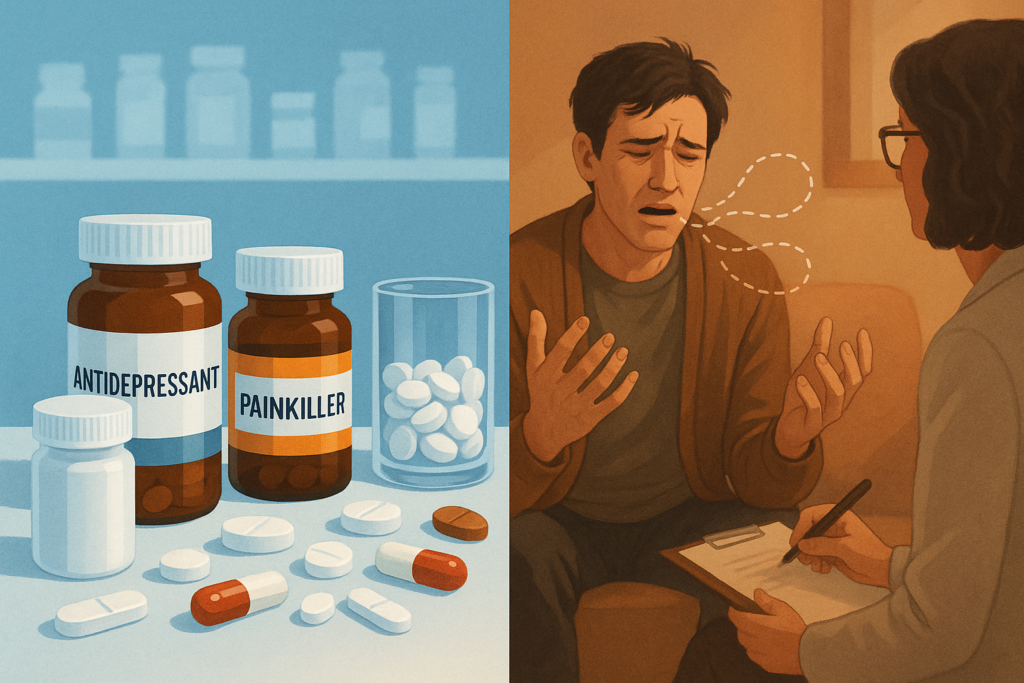
If you go the conventional route, you’ll be offered one of two things:
1. SSRIs (aka antidepressants)
These adjust your brain chemistry. They can help. Truly. But they can also flatten you. Emotionally, sexually, energetically. For some people, they create a fog instead of clearing one. And they often come with side effects that require more pills to manage.
2. Talk Therapy
It’s powerful, especially when you find someone you click with. But it also requires you to have language for what you’re feeling. And when you’re deeply anxious or stressed, words are often the first thing to go.
Both of these are valid tools. But sometimes, the wound isn’t in your head.
It’s in your nervous system.
And your body is the one screaming for help.
Acupuncture Doesn’t Ask You to Explain Yourself
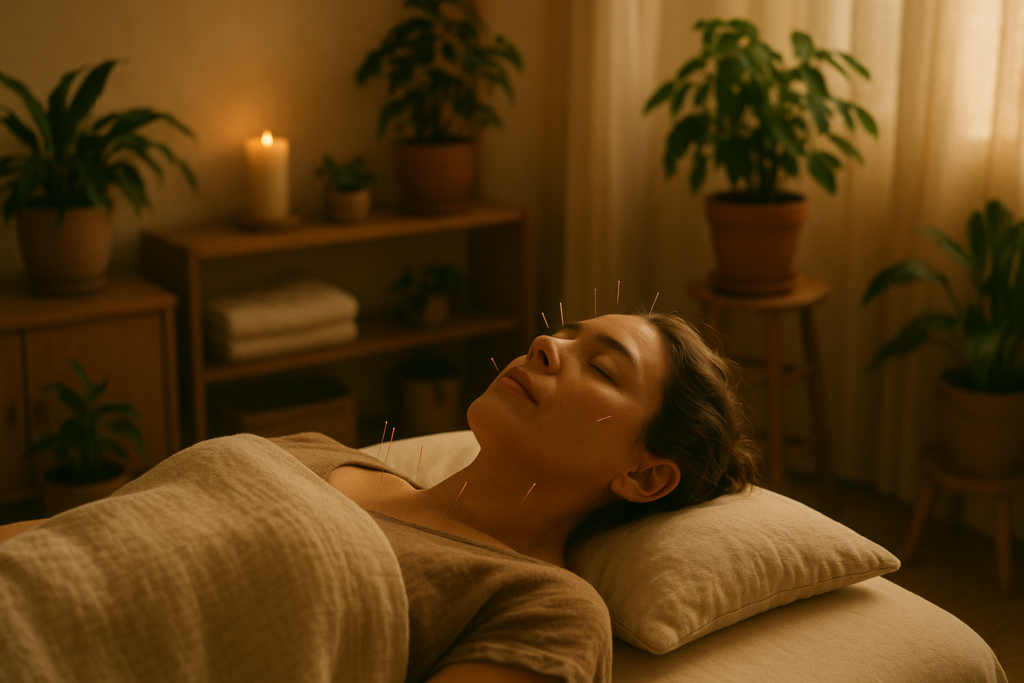
The beauty of acupuncture is that it doesn’t require you to be articulate, brave, or even fully conscious of what’s wrong.
It just asks you to show up.
At Balance Point Clinic, you come in, sit down, and let your body talk. One of the first things we look at? Your tongue. It’s not just a muscle—it’s a mirror. Its color, coating, cracks, and shape give us deep insight into your digestion, your energy reserves, even the emotions you’ve quietly tucked away.
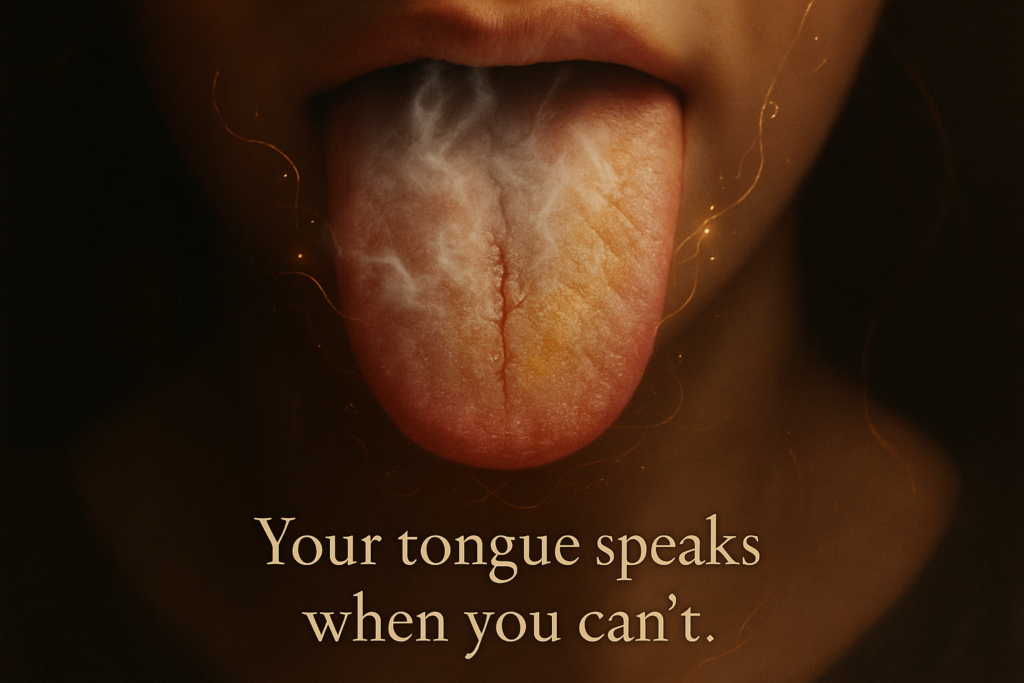
A pale tongue? That often points to blood or qi deficiency—maybe you’ve been running on empty, exhausted but still pushing. A red tip suggests emotional heat, often from stress, anxiety, or even heartbreak. A purple or dusky hue can indicate stagnation, like energy or blood is stuck—perhaps you’re feeling emotionally blocked, or experiencing chronic pain that hasn’t found release.
Then there’s the coating:
A thick, greasy white coating could point to dampness—a TCM way of describing bloating, sluggish digestion, or emotional heaviness. A yellow coating? That may mean heat in the body—perhaps inflammation, irritability, or even hormonal imbalance.
No coating at all often reveals depleted yin—think night sweats, insomnia, dryness, or long-term stress burning through your reserves.
Cracks down the center may reflect a digestive system that’s been off balance for a while—gas, reflux, fatigue after meals.
A quivering tongue might show up when you’re dealing with anxiety or internal wind—those moments when your body feels unsteady, even if your mind is trying to hold it together.
Along with your pulse and breath, this helps us read your inner landscape—without you having to say a word.
Then—gently, precisely—we place fine, sterile needles along specific meridians (energy pathways), chosen to bring your system back into balance.
What happens next isn’t magic. But it feels like it.
Your breath slows. Your jaw unclenches. Your mind stops sprinting. You drop into a kind of rest that no app or podcast or herbal tea has been able to offer.
That’s not placebo.
That’s your nervous system switching modes—from chronic alert to rest-and-digest.
From fire alarm to quiet fireplace.
You don’t have to explain why you’re here.
You just have to arrive.
So What’s Actually Happening?
On a biological level, acupuncture:
- Activates the parasympathetic nervous system (your body’s natural calm state)
- Reduces cortisol (the stress hormone flooding your system)
- Stimulates production of serotonin and endorphins (your feel-good chemicals)
- Supports your gut and sleep cycles (both crucial to emotional balance)
But on a soul level? It’s something deeper.
It reminds your body what peace feels like.
The Balance Point Difference: We Treat All of You
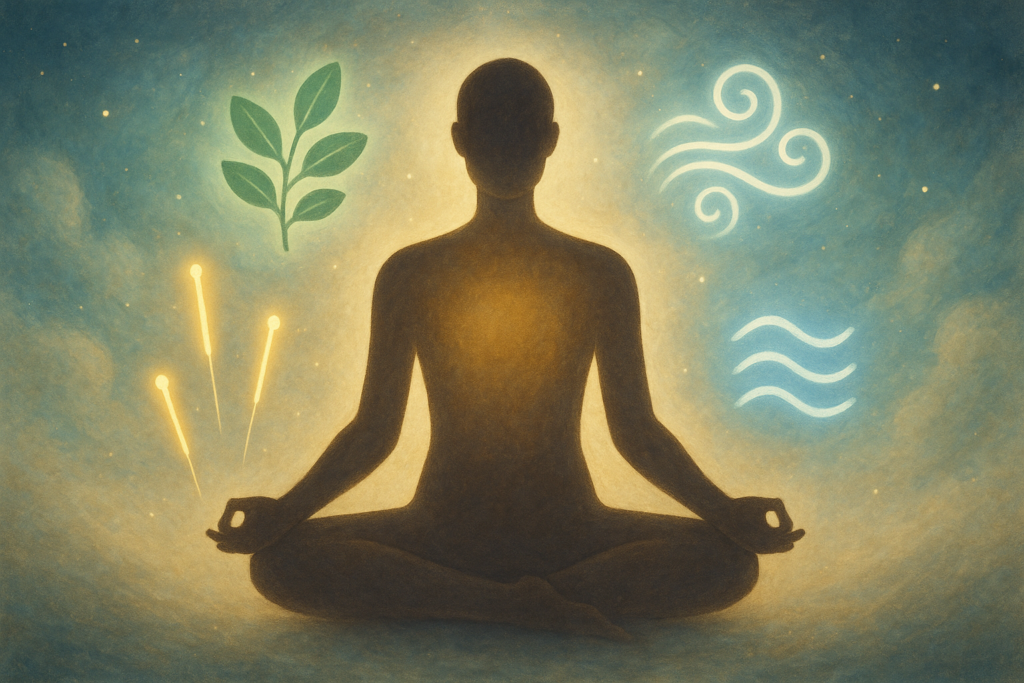
This isn’t a spa. This isn’t a patch job.
At Balance Point Clinic, founded by Priya Samwani, we treat stress and anxiety as whole-body imbalances—not mental glitches.
When you walk in, we ask:
- Do you wake at 3 AM every night?
- Is your digestion off?
- Are your thoughts racing while your limbs feel heavy?
- Is your anxiety sharp and fast—or dull and constant?
From there, we build a mind-body healing plan that might include:
- Weekly acupuncture sessions (6–8 to start, then tapering)
- Electro-acupuncture for trauma patterns or nervous exhaustion
- Sujok therapy so you can manage symptoms at home with pressure points
- Herbs like Brahmi, Ashwagandha, Suan Zao Ren—to calm the heart, ground the mind, and rebuild resilience
- Breath rituals and lifestyle shifts to support the work between sessions
- A safe space where your nervous system can finally, finally stop bracing
No, You Don’t Need to Have It “That Bad”
People often wait too long to seek help—thinking they’re not anxious enough, not sad enough, not burnt-out enough.
But you don’t need a diagnosis to be tired of feeling tired.
You don’t need to hit bottom to want more than just “managing.”
You’re allowed to want ease.
To feel okay without numbing.
To walk into a room and not carry your whole life’s pressure in your shoulders.
Real Stories. Quiet Miracles.
Aarti, 34, came to us after what she called a “two-year hum of panic.” She functioned. She smiled at work. But she hadn’t felt calm in years.
Her fourth acupuncture session? She fell asleep on the table. For the first time in months. When she woke up, she cried. “I forgot what stillness felt like.”
Sameer, 28, was a startup guy on his third energy drink before noon. He didn’t believe in acupuncture. But his girlfriend booked him in. Week by week, he came back. The tension in his jaw softened. The caffeine shakes stopped. One day he said, “I don’t know what you’re doing. But I feel like I’ve got space in my head again.”
That’s the thing. Sometimes healing is quiet. You don’t notice it right away.
Then one day you wake up and realize—the dread didn’t come this morning.
Come Lie Down. We’ll Take It From Here.
There is nothing weak about needing help.
There is nothing indulgent about wanting peace.
And there is nothing more powerful than remembering—you are allowed to feel good in your own body.
Book a session at Balance Point Clinic.
Let your nervous system exhale. Let your thoughts settle. Let yourself come home.
Because the world is loud. But healing doesn’t have to be.
